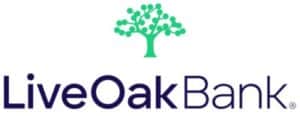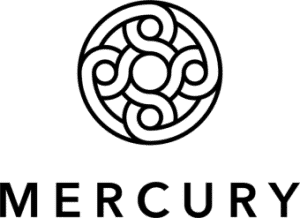Editor’s note: This is a recurring post with regularly updated account details.
The best business savings accounts offer interest that earns passive income on your company reserves. Some banks on this list provide outstanding high-yield savings and money market accounts (MMAs), while those with lower interest rates offer other strong business products and services to support your company.
The eight banks listed here offer one or more of three types of savings accounts: business MMAs, business certificates of deposit (CDs), and high-yield savings accounts. Here are the best savings accounts, with links directly to the provider pages:
- Live Oak Bank Member Federal Deposit Insurance Corp. (FDIC) : Best overall with high-yield savings and short-term CDs
- Mercury Provider is a fintech platform backed by and FDIC-insured through supporting bank partnerships with Choice Financial Group and Evolve Bank & Trust : Best interest-earning digital savings account for balances over $500,000
- U.S. Bank Member FDIC : Best traditional bank money market account with bonus introductory rate
- Relay Provider is a fintech platform backed by and FDIC-insured through supporting bank partnerships with Evolve Bank & Trust and Thread Bank. : Best automated business savings account
- Axos Bank Member FDIC : Best digital savings with high APY and expanded FDIC coverage
- Prime Alliance Bank Member FDIC : Best business savings account with tiered APY
- TAB Bank Member FDIC : Best for interest-earning savings and business financing options
- NBKC Bank Member FDIC : Best business savings for ATM fee reimbursements
Looking for a traditional bank where you can earn up to 4.25% bonus interest rate? |

|
Best Business Savings Accounts at a Glance
Live Oak Bank: Best Overall Business Savings Account With High-yield Savings & Short-term CDs

What We Like
- No minimum balance requirements
- No monthly maintenance fees
- High-yield return on both savings and short-term CDs
Drawbacks
- No physical branches
- No cash deposits
- $19 wire transfer fee
Features
- High-yield CDs
- Small Business Administration (SBA) and other loans available
- Free online and mobile banking
- Up to $10 million in FDIC coverage through Insured Cash Sweep (ICS)
Required Opening Deposit | None |
Required Balance Minimum | 1 cent to earn interest |
Transaction Limit Before Fees | Unlimited |
Automated Clearing House (ACH) Fees | None |
Monthly Fee | None |
Domestic Wire Transfer Fees | None for incoming; $19 for outgoing |
International Wire Transfer Fees | Unspecified |
ATM Fees | No debit card for savings product; must transfer cash to Live Oak business checking and then withdraw from ATM |
Cash Deposited | Cash deposits not accepted |
APY | 4.0% |
Customer Service | Phone: (866) 518-0286 from 8 a.m. to 8 p.m. Eastern time or through its support page |
Other Products | Business checking, CDs, SBA loans, United States Department of Agriculture (USDA) loans, and commercial lending |
When to Choose Live Oak Bank
- You need a high-yield business savings account: Live Oak Bank is our best overall business savings account since it has one of the highest APYs, currently 4.00%. Aside from its high-yield savings account for businesses, it offers business CDs with some of the highest APYs on short-terms. You can get 5.00% APY on a one-year CD, 4.75% on an 18-month CD, and 2.00% APY on CDs ranging from two to five years.
- You want a great fee-free online business savings account: We consider Live Oak the best savings account for small businesses because it has no monthly maintenance fees and requires no minimum deposit. You just need to meet a one-cent requirement to earn interest on the account.
When to Choose an Alternative
- You need to deposit or withdraw cash regularly: Live Oak Bank is accepting new customers for its business checking product once again. Because of that, you can no longer get a debit card with your business savings account. You will have to transfer money to your business checking first, then withdraw it. Consider getting both a business checking and savings account with Live Oak Bank or a traditional bank like U.S. Bank.
Mercury: Best Interest-earning Digital Savings Account for Balances over $500,000

What We Like
- No minimum deposit to open an account
- Physical and virtual debit cards
- Up to $5 million FDIC insurance via sweep networks through Mercury Vault
Drawbacks
- Accounts unavailable to sole proprietorships
- Lacks paper check-writing abilities
- Must ask for the Treasury account and must have account balances in excess of $500,000 to qualify
Features
- Accounts integrate with major accounting software
- Set customer user permissions for your team members
- Create auto-transfer rules for your accounts
- Integrates fully with QuickBooks and Xero accounting software
Required Opening Deposit | None |
Required Balance Minimum | None |
Transaction Limit Before Fees | Unlimited |
ACH Fees | None |
Monthly Fee | None |
Domestic Wire Transfer Fees | None |
International Wire Transfer Fees | None as long as it is sent through Mercury’s structure |
ATM Fees | no fee for nonnetwork ATM use, but operator fees may apply |
Cash Deposited | Cash deposits not accepted |
APY | |
Customer Service | Email customer service at hello@mercury.com |
Other Products | Checking: Must open a checking to get a savings and interest-earning Treasury account; credit card |
*Mercury is a business fintech platform backed by FDIC-insured Evolve Bank & Trust. | |
When to Choose Mercury
- Business owners looking to earn interest on large balances with an online-only bank: Mercury, which landed a spot in our roundup of the top online business banks, is an interesting option because you must open a business checking account to get a business savings account. The savings account is not interest-bearing; however, once you have over $500,000 in your accounts, you can request the interest-earning Treasury account—which has one of the highest APYs on the market. It currently earns a maximum of 5.40% APY.
- Tech companies and startups looking for fee-free accounts and additional FDIC Insurance: Mercury is a great choice for a tech or startup company; in fact, it is one of our best banks for startups. Its checking and savings accounts are free, with no minimum deposit or balance requirements. Its biggest perk is its Vault product. Mercury will use partner banks and a sweep network to insure business funds of up to $5 million.
When to Choose an Alternative
- Businesses needing to deposit cash: One major drawback with both Mercury business checking and savings accounts is the inability to deposit cash. If you need to deposit cash regularly, choose a traditional bank like U.S. Bank instead.
U.S. Bank: Best Traditional Bank Money Market Account With Bonus Introductory Rate

What We Like
- Waivable monthly fee
- Free mobile check deposits
- Apply in person, online, or by phone
Drawbacks
- Opening deposit required
- Expensive wire fees
- Limited free transactions
Features
- Send and receive money through app
- Integrations with QuickBooks and U.S. Bank Payment Processing
- Digital invoicing and payment systems integrated into your online dashboard
- Mobile app to monitor all of your accounts, transfer funds between accounts, and deposit checks online
- Free debit card and 50% discount on first check order up to $50
Required Opening Deposit | $100 |
Required Balance Minimum | None |
Transaction Limit Before Fees | Not stated |
ACH Fees | None |
Monthly Fee | $15; waived with $10,000 minimum daily ledger balance |
Domestic Wire Transfer Fees | Up to $40 for outgoing, $14 for incoming |
International Wire Transfer Fees | $75 for outgoing, $16 for incoming |
ATM Fees | No ATM transaction fees at U.S. Bank ATMs; Non-U.S. Bank ATM transaction fees apply |
Cash Deposited | No limit stated |
APY |
|
Customer Service | Customer service online, by phone, or in-branch during business hours |
Other Products | Business checking, lending, and cash flow products; other checking options, POS services |
When to Choose U.S. Bank
- You are looking for a traditional bank with a bonus APY for new accounts: If you open a new Platinum Business MMA before August 7, 2024, you can receive a bonus interest rate of 4.25% (4.34% APY) with a qualifying new money deposit. To qualify, you must open a new Platinum Business MMA and deposit anywhere from $25,000 to $2,999,999.99. See U.S. Bank’s full list of tiered APY for its MMA on its website. This offer ends on August 7, 2024.
- You have enough funds in your savings to waive the monthly fee: U.S. Bank charges a $15 monthly fee, which can be waived if you have at least a $10,000 daily balance.
When to Choose an Alternative
- You need to visit a traditional bank but don’t live near a U.S. Bank location: This MMA is now available nationwide, not just in the 26 states where U.S. Bank operates physical branches. However, if you need to visit a branch for your daily banking needs, you may want to consider Chase or Bank of America instead.
Relay: Best Automated Business Savings Account
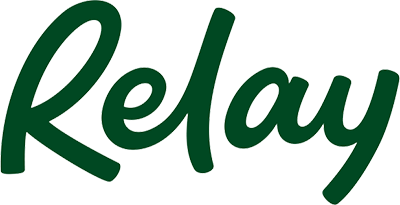
What We Like
- Tiered APY allows for higher earnings for larger balances
- No monthly fees
- Auto-transfer allows for excess funds to be swept directly into savings
Drawbacks
- Must have a Relay business checking account to open
- Cannot access funds via debit card or external transfer
- Savings can only be used to cover operating expenses if funds are moved back into checking account
Features
- Fee-free online banking and money management platform
- Open up to two savings accounts
- Can set maximum balance in checking so excess funds are swept into savings automatically
- Can also manually transfer funds between checking and savings account
- Customer service via email, mail, and web contact form, and the app
- Accounting software integrations with QuickBooks, Xero, and Plaid
- No lending product
When to Choose Relay
- You have Relay business checking and want to earn interest off reserve funds: Relay, one of the best online business banks on the market, has a great savings product. In fact, if you are a business checking customer, a savings account is automatically created. You can have up to two savings accounts and earn up to 3.0% APY on your savings balances. Relay’s APY is tiered so you will earn more interest with higher balances. The combined funds of your two savings accounts determine the APY rate.
- You want auto transfers between checking and savings: Relay allows you to set rules that automatically pull funds from your business checking to savings when a maximum threshold is reached. You must have a Relay checking account to open a savings account. The auto-transfer feature is a great reason to have both account types with the same provider.
When to Choose An Alternative
- You want to withdraw cash or make external transfers directly from savings: To help businesses keep their reserve funds without dipping into them, you cannot link your savings to any debit card. Further, you cannot send and receive payments via ACH, wires, or checks from your savings or use it as a source account for external auto transfers. A traditional bank like U.S. Bank will more likely issue a debit card for business savings.
Axos Bank: Best Digital Business Savings with High APY & Expanded FDIC Coverage
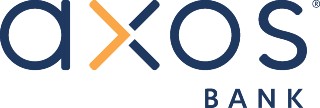
What We Like
- No minimum opening deposit and no average daily balance requirement
- High APY
- No monthly maintenance fee
Drawbacks
- Limited to 20 free transactions per month
- No debit card issued
- No physical branches
Features
- CDs and money market accounts
- Free incoming wire transfers
- SBA loans and commercial lending
- Business deposit accounts are FDIC insured up to $250,000
- Option to expand FDIC coverage to $240 million through Axos Bank Insured Cash Sweep (ICS)
When to Choose Axos Bank
- You want a free business savings account with high-interest return: Axos Bank offers a solid business savings product, Business Premium Savings. It’s included in our list of the best business savings accounts for small businesses since it provides a high APY of 4.01% and does not require a minimum opening deposit, average daily balance requirement, and monthly maintenance fee.
- You have large balances you want to protect: Axos Bank offers expanded FDIC coverage of up to $240 million with its ICS program through IntraFi Network Deposits. The standard FDIC insurance limit is $250,000 per depositor and account ownership category.
When to Choose an Alternative
- You want the convenience of withdrawing cash from an ATM: Axos Bank does not provide a business debit card when you open a business savings account, which can be limiting. However, debit cards are available for its business checking products. If you’re looking for a savings account with debit card access, you can choose to open at a traditional institution like U.S. Bank.
Prime Alliance Bank: Best Business Savings Account With Tiered APY
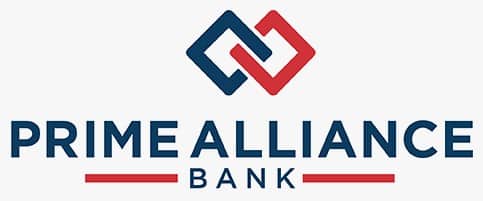
What We Like
- No monthly maintenance fee
- No minimum balance requirement
- Tiered deposit levels to earn additional interest
Drawbacks
- No online account opening for business savings
- No debit card for business savings accounts
- No weekend customer service
Features
- SBA loans
- Equipment financing
- Checking, money market, and CDs available
 | |
|---|---|
Required Opening Deposit | None |
Required Balance Minimum | None |
Transaction Limit Before Fees | Unlimited free deposits and up to six withdrawals/transfers per month; $10 each after six |
ACH Fees | None |
Monthly Fee | None |
Domestic Wire Transfer Fees | $10 incoming; $15 outgoing |
International Wire Transfer Fees | $10 incoming; $40 outgoing |
ATM Fees | ATM card not available with business savings |
Cash Deposited | None |
APY |
|
Customer Service | Can visit the branch, message online, or call Monday through Friday between 8:30 a.m. and 5:30 p.m. Mountain time |
Other Products | Commercial checking, money market, CDs, and commercial loans |
When to Choose Prime Alliance Bank
- You want to take advantage of the tiered APY structure to grow your savings account: Prime Alliance Bank is included in the ranking of the best bank for small business savings accounts. It has a great business high-yield savings account with the highest APY available and uses a tiered APY structure to reward you as your balance increases. The starting APY is 3.85%, which increases to 4.05% once you have at least $100,000. When your balances surpass $200,000, the APY increases to 4.25%.
- You make most of your withdrawals in person, via telephone, or by mail: The bank offers unlimited free deposits and up to six monthly withdrawals and transfers. It charges a $10 fee for excess withdrawals and transfers. However, withdrawals made in person at the bank, by telephone, ATM, or by mail are exempt from the limit. If you exceed the transaction limit three times in a rolling 12-month period, the account will be converted to a demand deposit account.
When to Choose an Alternative
- You need in-person or weekend customer service: Customer service is only available Monday through Friday during business hours Mountain time. Alternatively, you can stop by the company’s lone branch in Woods Cross, Utah. If you need branch access, consider a provider with more branches like U.S. Bank. Otherwise, consider a fintech like Relay with better off-hours customer service.
TAB Bank: Best For Interest-earning Savings & Business Financing Options

What We Like
- Full-service online bank
- Customer service Monday through Saturday
- Partners with Autobooks for invoicing services
Drawbacks
- No physical branches
- No free incoming wires
- No ATM network, no reimbursements for ATM use
Features
- Checking, savings, MMAs, and CDs
- Accounts receivable (A/R) financing
- Asset-based lending
- Term loans
- Equipment financing
Required Opening Deposit | $25 |
Required Balance Minimum | $1 to maintain |
Transaction Limit Before Fees | Unlimited |
ACH Fees | None |
Monthly Fee | None |
Domestic Wire Transfer Fees | $15 for incoming wire; $30 for outgoing |
International Wire Transfer Fees | Unspecified |
ATM Fees | No ATM card provided |
Cash Deposited | Cash deposits not accepted |
APY |
|
Customer Service | Phone: (800) 355-3063 Monday to Friday 6 a.m. to 7 p.m. Mountain time; Saturday from 9 a.m. to 3 p.m. MT or message via website |
Other Products | A/R financing, asset-based lending, invoice factoring, equipment financing, business checking, money market, CDs, and commercial real estate (CRE) lending |
When to Choose TAB Bank
- You have business financing needs, as the bank offers a wide array of lending products: For an online-only bank, TAB Bank offers a great variety of lending products. These include AR financing, asset-based lending, equipment financing, business term loans, business lines of credit, factoring, and commercial real estate loans.
- You want to earn interest from either an MMA or a business CD: We consider TAB Bank as one of the best savings accounts for businesses since it improved its MMA by offering 4.00% APY on the first $1 million. Balances above that and business savings balances earn 0.25% APY. Additionally, its CD rates are stronger than its savings and MMAs, with APY between 4.00% and 5.27%, depending on the length.
When to Choose an Alternative
- You need to withdraw cash from your savings account: There is no option to obtain an ATM card with your business savings account. If you need to withdraw money from your savings, you cannot do it through an ATM. In that case, you may consider U.S. Bank or another traditional banking provider.
NBKC Bank: Best Business Savings for ATM Fee Reimbursements

What We Like
- No monthly fees, minimum balance, and initial deposit required
- No fees for incoming domestic wires
- ATM fee reimbursements of up to $12 per month
Drawbacks
- Limited branches (only in Kansas and Missouri)
- Autobooks subscription costs $10 per month after 30-day free trial
- International and domestic outgoing wires aren’t free
Features
- Free debit card
- Business account add-ons, such as business fraud tools and desktop deposits
- Deposit checks and pay bills via the NBKC app on your mobile, tablet, or desktop
- Autobooks software integration
- Business MMAs and business CDs to grow your funds
- Other business solutions, including disbursement, fraud management, collections, and cash management
 | |
|---|---|
Required Opening Deposit | None |
Required Balance Minimum | None |
Transaction Limit Before Fees | Six free transactions; exceeding the limit may lead to account reclassification |
ACH Fees | None |
Monthly Fee | None |
Domestic Wire Transfer Fees | None for incoming, $5 for outgoing |
International Wire Transfer Fees | $45 for incoming and outgoing |
ATM Fees | No charge for out-of-network ATM usage; refunds ATM fees up to $12 per month |
Cash Deposited | Free at 34,000-plus MoneyPass ATMs |
APY | 2.75% |
Customer Service | Hotline: (888) 905-2165 Monday to Friday, 8 a.m. to 5 p.m. Central time E-mail: customersupport@nbkc.com |
Other Products | Money market, CDs, checking, lending, business solutions including disbursement, fraud management, collections, and cash management |
When to Choose NBKC Bank
- You make frequent ATM withdrawals and cash deposits: NBKC refunds up to $12 monthly in ATM fees. You can also make deposits at one of over 34,000 MoneyPass ATMs nationwide.
- You seek a largely fee-free banking experience with a solid APY on business MMA balances: NBKC is largely a fee-free banking product, with no minimum balance or opening balance required, no monthly fees, and free incoming domestic wires. In addition, you can earn 2.75% APY on all balances in its MMA.
When to Choose an Alternative
- You want to have strong returns on short-term business CDs: Short-term CD rates are low compared to other providers in this guide, with three- and six-month CDs at 0.10% APY. However, NBKC has 7- and 11-month CDs at 4.50% APY. It appears those two CDs can be opened directly online. Rates on CDs over 15 months range from 2.75% to 3.25% APY. Consider Live Oak Bank or TAB Bank for better short-term CD rates.
How We Evaluated the Best Business Savings Accounts
When compiling this list, we reviewed 95 banks, including more than a dozen specific savings accounts. When we evaluated the best small business savings accounts, we considered the following terms and features:
- Interest earned (in APY)
- Monthly fees, and how easy they are to waive
- Minimum opening deposit and balance requirements
- ATM fees and withdrawal limits/availability
- Customer service availability
- Cash deposit availability and limits
- Other business products provided by the bank
- Wire transfer fees and transaction fees
What to Consider When Choosing the Best Small Business Savings Account
While we used our own criteria to select the best small business savings accounts for this list, here are some things you should review before making a selection:
1. Understand the Types of Savings Accounts
Not every business savings account is the same. In addition to traditional business savings accounts, there are high-yield business savings, business money market accounts (MMAs), and business certificates of deposit (CDs). Each type of account has slightly different rules and will earn you different rates of return.
See our guides comparing some of these account types to learn more:
2. Understand the Fee Structure and How It Will Apply to Your Business
Fees can vary widely in a business savings account. Here are some of the fees you may encounter:
- Monthly fees: Some business savings accounts charge a monthly fee to operate the account
- Minimum balance fees: Some accounts require you to keep a minimum balance in your account and may charge you a fee if you drop below that balance
- Transaction fees: This is the most important one to know. Even though federal transaction limits have been dropped, many banks still limit savings transactions. If you exceed those, you may pay penalty fees or have your account reclassified to a non-interest-bearing account.
While our buyer’s guide is a great starting point to compare fees between providers, you should always review a schedule of fees directly from the provider before opening an account.
3. Consider Opening a Savings Account at the Same Bank as Your Business Checking
It isn’t required that you open a business savings account at the same bank that holds your business checking. However, there could be some advantages in doing that, such as
- Increased savings rate: You might get a bump in your savings rate by having a business checking at the same bank.
- Faster transfers: If you are transferring money within the same bank, those transfers will likely be almost immediate. External transfers can take a couple days.
- Growing a banking relationship: If you add banking products to an existing business checking provider, it will continue to grow that relationship, which can be beneficial as your business grows and needs financing or merchant service products.
Alternatives to the Best Small Business Savings Accounts
- Bluevine: Best for those looking for an interest-earning, digital-only bank account. Earn up to 2.0% APY on balances up to $250,000 with Bluevine Standard Checking. Check out our Bluevine business checking review for more information.
- Grasshopper: Best for businesses looking for interest-earning business checking and cash back on debit card purchases. It offers up to 2.25% APY uncapped on business checking and unlimited 1% cash back on qualified purchases. Read our review of Grasshopper business checking to learn more.
When choosing a savings account over a checking account, you are looking for an interest-earning account that exceeds most checking account APYs. Choosing one of these accounts would give you more freedom with fee-free transactions, making them two of the best small business checking accounts.
What You Need To Open Small Business Savings Accounts
The documents required to open a small business savings account are the same as for a small business checking account. Be sure to confirm whether you can open the account online or if you need to visit a branch to do so. Requirements may vary from bank to bank and depend on your business type, but they typically include the following:
- Employer identification number (EIN) or Social Security number if you’re a sole proprietor
- Fictitious business name certificate or doing-business-as (DBA) certificate
- Business formation documents
- Organization documents, including your ownership agreements
- Business licenses
- Government-issued photo ID, such as a passport or driver’s license
- Percent of ownership and annual gross revenue
Frequently Asked Questions (FAQs)
Yes, business savings accounts are a great way to earn interest on reserve business funds. If your business has extra finances that are not needed for the day-to-day operations of your business, it is worth it to open a business savings account so that money can grow.
Depending on which business savings account provider you choose, it may have a minimum or maximum amount of money on which you can earn interest. You should keep enough money to ensure you’re drawing interest. If your bank has a tiered APY structure for its savings account, you’d like to meet the required balances to earn the highest interest rate possible.
At a minimum, you should figure out how much you need to operate your business for one month and keep anywhere from three to six months’ worth of reserves in your savings account in case of an emergency.
A business savings account has four major benefits: saving for a future large purchase, an emergency, scheduled payments such as taxes and insurance, and earning extra revenue.
Yes. Some banks, such as Live Oak, Axos, and Prime Alliance offer high-interest traditional savings accounts. The savings accounts may differ on the number of free transaction limits provided.
Bottom Line
A business savings account can help your business earn extra revenue on its reserve funds. It lets you earn interest while allowing access to the funds when you need to use them—MMAs and CDs can restrict access to your funds, but both often come with higher APY. Compare the options on this list and choose the provider that best meets your business needs.
